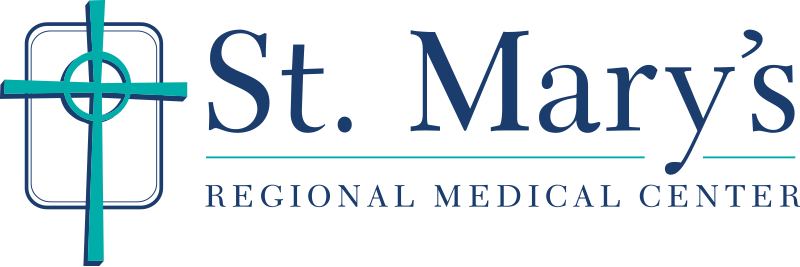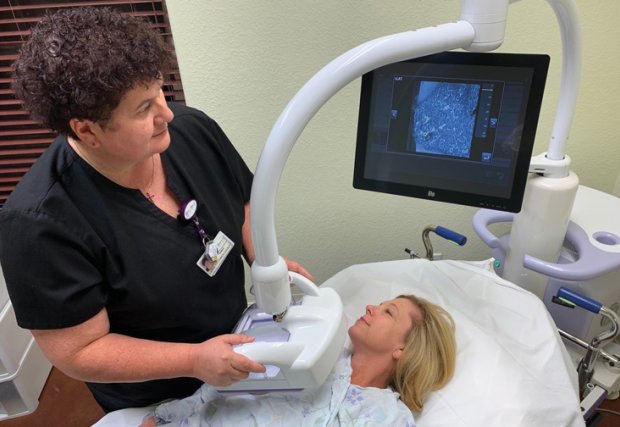If you’re like 40 percent of U.S. women with dense breast tissue, you may need more screening in addition to a mammogram. The Invenia™ ABUS 2.0 is specifically developed for this purpose and is clinically proven to increase cancer detection by 35.7 percent.* St. Mary’s is the first facility in Northwest Oklahoma to offer this technology.
Breast density is determined by the radiologist who reads your mammogram and is broken out into four categories: A, B, C and D. Categories C or D are considered dense, which means breasts have more tissue than fat. Having dense breasts may increase the risk of developing cancer 4 to 6 times.** It can also make cancer harder to detect because cancer and breast tissue both appear white on a mammogram. With ABUS ultrasound testing, however, masses appear black against a white background, making them easier to see.
The Invenia ABUS 2.0 is the only ultrasound technology FDA-approved for breast cancer detection in women with dense breast tissue. The exam involves no radiation because it is an ultrasound test, says St. Mary’s Director of Radiology Bob Brice, BS, CNMT, ARRT(N).
Brice notes that earlier in 2019, a national law was passed mandating that the FDA update mammography reporting so that women be notified if their breasts are dense. Here in Oklahoma, this kind of notification has already been in place in accordance with a 2016 state law.
As awareness about breast density grows, ABUS screening empowers patients, Brice says. Knowing that they can have this exam along with their mammogram can provide an important tool for earlier detection and peace of mind.
St. Mary's Women's Imaging Center
Along with breast health services, St. Mary’s Women’s Imaging Center offers bone density tests, also known as DEXA scans, that can assess your bone health. Your risk of osteoporosis increases as you get older, and while anyone may be affected, women are more at risk than men. Ask your doctor about your risk of osteoporosis and whether you should be tested.
To make an appointment or to learn more about comprehensive imaging services, including 2D and 3D digital mammography, call 580-249-3770.
Most insurance companies cover ABUS screening, but it is recommended to check with your insurer about your specific coverage.
*FDA
**pubmed.gov

